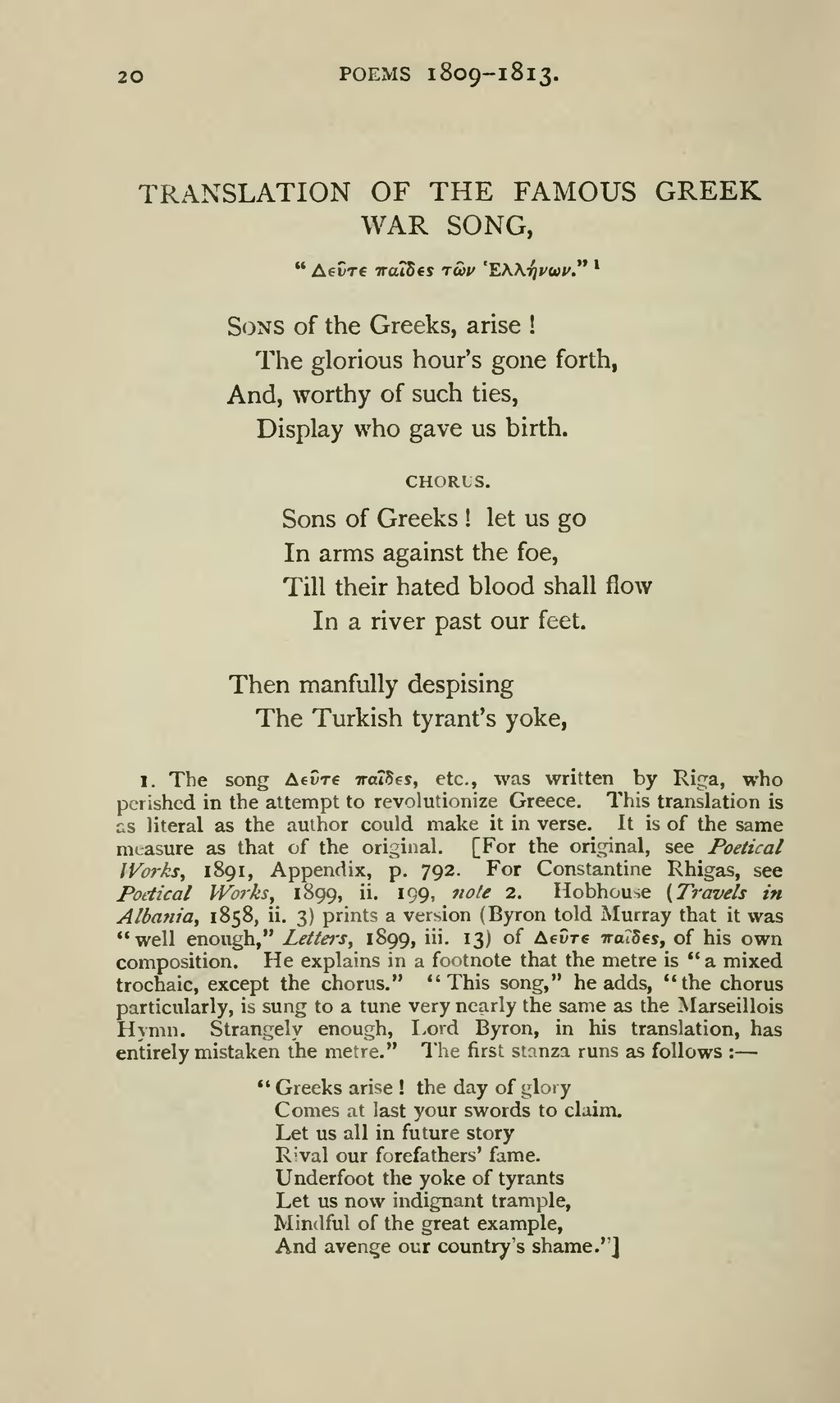20
POEMS 1809-1813.
TRANSLATION OF THE FAMOUS GREEK WAR SONG,
"Δεῦτε παῖδες τῶν 'Ελλήνῶν."[decimal 1]
Sons of the Greeks, arise!
The glorious hour's gone forth,
And, worthy of such ties,
Display who gave us birth.
CHORUS.
Sons of Greeks! let us go
In arms against the foe,
Till their hated blood shall flow
In a river past our feet.
Then manfully despising
Notes
- ↑ The song Δεῦτε παῖδες, etc., was written by Riga, who perished in the attempt to revolutionize Greece. This translation is as literal as the author could make it in verse. It is of the same measure as that of the original. [For the original, see Poetical Works, 1891, Appendix, p. 792. For Constantine Rhigas, see Poetical Works, 1899, ii. 199, note 2. Hobhouse (Travels in Albania, 1858, ii. 3) prints a version (Byron told Murray that it was "well enough," Letters, 1899, iii. 13) of Δεῦτε παῖδες, of his own composition. He explains in a footnote that the metre is "a mixed trochaic, except the chorus." "This song," he adds, "the chorus particularly, is sung to a tune very nearly the same as the Marseillois Hymn. Strangely enough, Lord Byron, in his translation, has entirely mistaken the metre." The first stanza runs as follows:—
"Greeks arise! the day of glory
Comes at last your swords to claim.
Let us all in future story
Rival our forefathers' fame.
Underfoot the yoke of tyrants
Let us now indignant trample,
Mindful of the great example,
And avenge our country's shame."]
